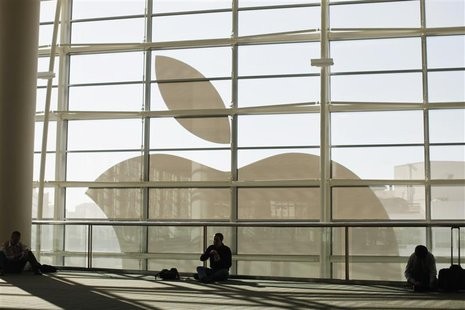
Apple has sidestepped billions of dollars in global taxes this fiscal, paying just 1.9 percent on its profits by offshoring accounts and creating subsidiaries on low-tax states.
An annual filing with the US Securities and Exchange Commission showed that the Cupertino-based firm paid $713 million on its $36.8 billion profit earnings outside the US in the fiscal ending Sept 29. Last year, the iPhone maker paid 2.5 percent tax on its $24 foreign earnings, deducing a near 25 percent reduction in tax rate this time.
Apple's tactic in dodging the tax bullet involve channelling profits through countries offering reduced tax liabilities - a strategy known as "Double Irish With a Dutch Sandwich" that is increasingly adopted by other top corporations, according to Associated Press.
One of Apple's biggest tax havens is Ireland which charges 12.5 percent in corporation tax as opposed to 35 percent charged by the US. The company has also set up subsidiaries in Nevada, the Netherlands, Luxembourg and the British Virgin Islands to ensure that it gets a tax break, according to an earlier report by The New York Times (NYT).
By funnelling its profits into these offshore subsidiaries, Apple's overseas cash pile now stands at $82.6 billion, up 12 percent from the quarter ending June.
Though the strategy is an acceptable practise by corporate conglomerates and by IRS standards, it has affected the public in need of the company's tax dollars for state's development. Nevada charges no corporate tax while the tax rate in California, where Apple's headquarters are located, stands at 8.84 percent.
"Apple, like many other multinationals, is using perfectly legal methods to keep a significant portion of their profits out of the hands of the I.R.S., and when America's most profitable companies pay less, the general public has to pay more," former Treasury Department economist Martin Sullivan had told NYT earlier.
A CNET report pointed out that foreign profits are important for Apple, which estimates a large chunk of its future profits to come from emerging markets like China and India.














